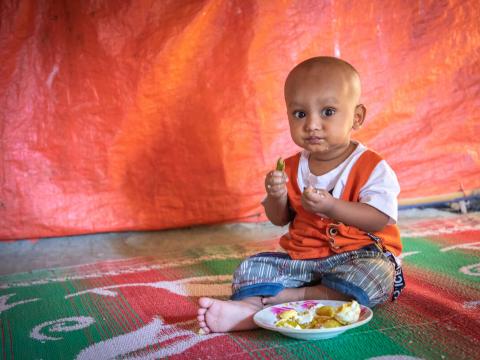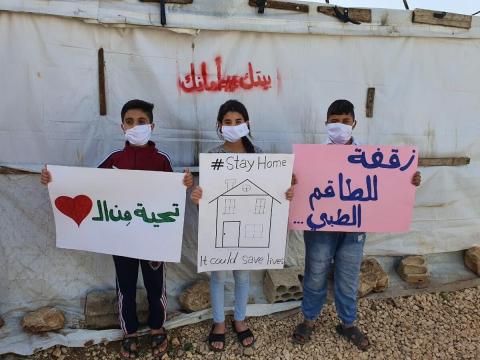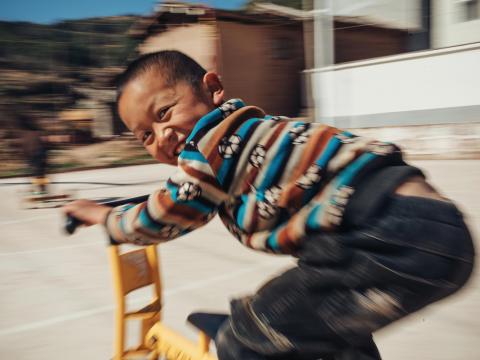
What happens if we miss our window?
By Dana Buzducea
It feels like a lifetime ago, but it has only been a year since I stood in New York, excited and determined as we looked forward to kicking off the Decade of Action and Delivery. It was to be a chance for all of us to pick up the pace on progress towards achieving the Sustainable Development Goals for children. An increase in pace was what we needed; we were behind on some, on others we were going backward.
I felt disappointed at our lack of progress so far, determined to throw everything World Vision has at making sure we leave no child behind in our work to realise life in all its fullness for them, but I also felt hope, because there was a sense of shared purpose and were joined by some of the most courageous young people I’ve ever met, who reminded us what was at stake.
I was coming to this determination from my two life paths. First, as a mother who witnessed my two children growing and their needs in their formative years. And second, as a social worker specialising in child protection, formed in the hardships of the Romanian post-communist orphanages, witnessing the lifelong costs children paid for adults’ lack of action, courage or love. Those children’s stories and experiences still haunt me today.
For many parents and professionals, the days with small children can feel so long, but the years so short. I learned how important it was to ensure children had everything they needed in the small but most vital window of their childhoods.
Sometimes we may feel that we have time to fix things. A month passes by in the blink of an eye. But for a baby or a toddler that month represents a really small, extremely important window of development. Regardless of where they’re born, or which conditions they are born into, if children have the right inputs they can form social bonds, develop skills and abilities that set them up for life. Some of the most powerful research into this area has come from Romania, where through collaborations like the Bucharest Early Intervention Project, the scientists found “the results of neglect can be striking, including significant cognitive delays, increased risk for psychological disorders, and stunted physical growth”. Without the right care, children don’t learn the resilience, social behaviours, sense of belonging, or capacity for empathy that are so important as they grow up, that ultimately form the fabric of our societies. Can you mentally multiply the impact of the lack of such abilities with the hundreds of thousands children who are living in vulnerability today?
This is why I feel that urgency again today, for the millions of children we are allowing to live in limbo. We don’t have decades to figure out how to get them what they need. We have months, maybe a few years.
A year on from last year’s UN General Assembly, I feel real worry. Not only because of the virus that is wreaking so much havoc on the lives of people I know, love and see around the world. But because of its aftershocks, which are threatening the futures of children, and the progress we’ve all achieved so far.
But I also worry about distraction. I feel we cannot repeat the mistakes of the past, when children were made invisible in remote orphanages and only existed in statistics. We need to increase their visibility. To use the adequate tools we have to monitor the Sustainable Development Goals that affect their lives. To know how much our world is investing in our children’s future. Only then will we be able to keep our heads up when the next generation of professionals will look us in the eye when they will take over. And I am sure they will ask what we have done to prevent horrifying images of children in grief. Because I did too.
COVID-19 is reshaping our world, and we are all adapting to the constant uncertainty it brings with it. This is right and this is important, however we cannot allow the pandemic to be used as a distraction from what we must achieve. If anything, this global crisis just makes clear why the Sustainable Development Goals are so important.
We cannot afford to let our shared Agenda 2030 fail. We cannot afford to let a child living in fear today, unable to go to school, locked in with an abuser, miss their window. “Pick up the pace for children!” is today even more time-critical than one year ago.
Dana is World Vision’s Partnership Leader for Advocacy and External Engagement. Follow Dana on Twitter @DanaBuzducea


